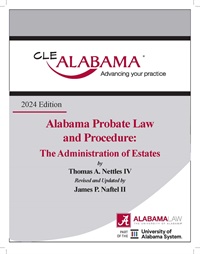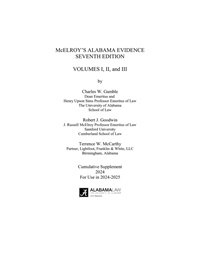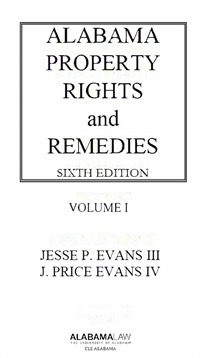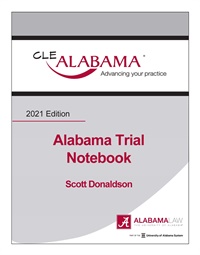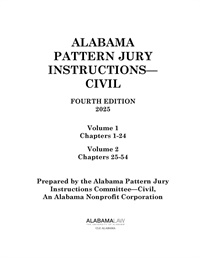Description
Guardianships may be used to provide for incapacitated persons in a variety of ways. One of the most common uses of guardianship is to establish a legal decisionmaker for an incapacitated patient, usually in the inpatient setting. The petitioner in such medical guardianship cases may be the Department of Human Resources (DHR), an interested person such as a family member or friend, or a hospital or other health care institutional provider (skilled nursing facility, assisted living facility, etc.) – essentially any “interested person.”3 Although these guardianship petitions are filed most commonly when advance planning for health care has not been completed (advance health care directive, health care power of attorney, etc.), there may be also be a need when a physician or medical facility cannot resolve disputes between those claiming surrogate authority, have serious doubts about the legal or ethical exercise of that authority, or simply cannot resolve between competing surrogates whose authority to recognize and follow.
Elder law attorneys can find themselves representing any number of parties in such proceedings or serving in several distinct roles, including the following:
• Attorney for the petitioner (interested person, medical facility, DHR, or other)
• Attorney for the respondent (the proposed ward)
• Guardian Ad Litem (representing the best interests of the respondent)
• Attorney for an Intervenor (perhaps seeking to be named guardian)
Each of these roles has a slightly different goal for their guardianship representation. Exploring the best strategies and most common issues facing attorneys representing these different parties is beyond the scope of this presentation. Needless to say, however, these cases pose some common issues for all attorneys involved, regardless of the party they represent. The purpose of this presentation is to identify how such matters end up as contested guardianships, to examine the role of the Court in establishing a guardian as the surrogate decision-maker for an incapacitated patient, to discuss the required proof necessary to prove that a patient is incompetent to make medical decisions and the most
common instruments used to measure that incapacity, and finally to discuss whether the use of a guardian is the best and most effective way to make medical decisions for an incapacitated patient. Finally, the article closes with a discussion of the steps elder law attorneys might take to reduce the necessity for guardianship when a surrogate medical decision-maker is needed.
Handouts
| Seminar Handout (1009.4 KB) | 22 Pages | Available after Purchase |
| PowerPoint Slides (1.3 MB) | Available after Purchase | ||
Faculty

Hugh Lee Related Seminars and Products
East Carolina University
Hugh M. Lee joined the Department of Bioethics and Interdisciplinary Studies in January 2015. Prof. Lee holds a B.A. from Davidson College and a J.D. from the Florida State University College of Law. Prior to joining the Department, Prof. Lee taught for 19 years at The University of Alabama School of Law, where he taught a variety of courses, including the Elder Law Clinic, the Civil Clinic, and the Foreclosure Relief Clinic. With a special interest in elder and disability law, he directed the Elder Law Clinic, served on the Executive Committee of the Center for Mental Health and Aging, taught in the graduate school and department of psychology on issues related to aging, served on the board of several aging advocacy groups, served on the Executive Committee of the elder law section of the Alabama State Bar, and won grants from the Administration on Aging, the Alabama Department of Senior Services and the Alabama Attorney General's office. Prof. Lee has published extensively in the areas of elder law, including Alabama Elder Law - an extensive treatise published by West Publishing Company and used widely by Alabama attorneys. His numerous articles including articles addressing incapacity, advance planning, surrogate decision-making, elder law and policy, foreclosure, and election law. He has presented at state and national conferences on issues affecting the elderly and has produced training materials for state and local aging advocates. For his work, Mr. Lee received the Alabama State Bar's Association's Pro Bono Award and its President’s Award.


